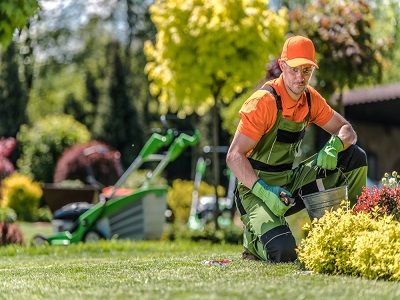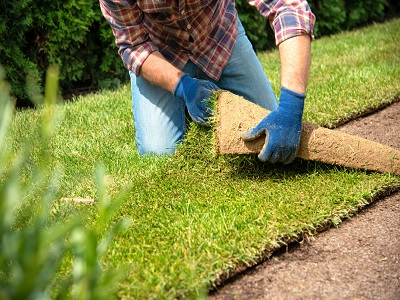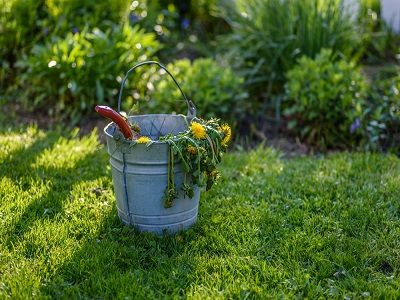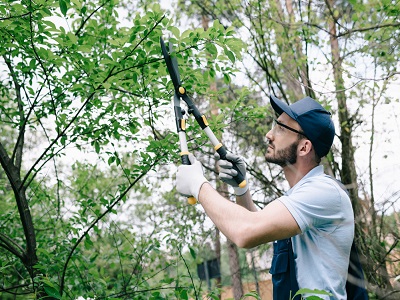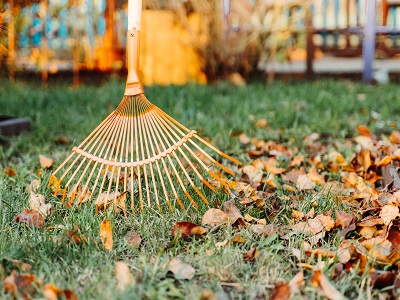
Your lawn could be the most important part of your garden landscape. You do everything to keep your lawn looking beautiful, from seeding and mowing to weeding, and raking the autumn leaves. Your lawn might be made up of either warm-season grasses like Bermuda or Kentucky blue depending on where you live. Or, it may include cool-season varieties such as perennial rye, Kentucky blue, and fescue. Warm-season grass is grown in spring and summer and becomes straw-colored in colder weather. Cool-season turf grows most efficiently in spring and autumn and maintains some of its green colors through the coldest months. In this article, we’ll take a look into winter lawn care and what you need to do.
Winter Lawn Care Essentials
1. Aerating
Due to heavy foot traffic and the use of machinery such as those used for landscaping or home construction, the soil beneath the grass can become compacted. This can lead to soil drying out and poor nutrient uptake.
2. Salt Damage Prevention
Salt-based deicing products can cause damage to nearby grass by leaching into it. This can cause “physiological dryness”, which is a condition that prevents nutrients from being uptaken and leaves grass with bare spots. You can use calcium chloride to treat walkways near your lawn’s edges.
3. Fertilizing
Also, winter is a great time to add lime to acidic soil if it isn’t already frozen. A soil test can help you determine the pH of your soil. A slow-release fertilizer that is “winterizing”, can be applied. This is a great way to get the ground moving with spring shoots that are well-nourished. Hiring fertilizing services makes it easier especially if you happen to be within the service area of a lawn care expert like Conway Lawn Care Services.
4. Maintaining Equipment
You can give your mower a thorough cleaning and tightening if you don’t have the time. As needed, repair or replace parts. It is a good idea to sharpen your mower blades in order to cut the grass cleanly. The mower blades can become brittle and less effective at cutting the grass. This leaves the grass blades jagged and more susceptible to diseases.
5. Reduce soil compaction
Compaction of the soil below the turf can reduce its ability to nourish it and may cause drying out or drainage problems. Salt damage can also be caused by snow accumulation on top of the grass. When possible, avoid putting shoveled snow on the grass. Spread it if you don’t have any other choice.
6. Mowing
It’s fine if the cold weather arrived before you cut your last grass. You can still cut your grass on a dry day. In order to prevent rodent infestations (especially voles), and the formation of snow mold, your winter grass should be cut shorter than in the summer. Both can lead to more work in spring when you have to repair the bare patches. You could also call Conway lawn care services if mowing isn’t your thing.
7. Raking
Because the trees drop their leaves at different times and we sometimes have to rake them up, raking is a constant chore in my neighborhood. Winter is the best time to complete your fall leaf cleanup. Wet leaves on the lawn can lead to water accumulation, fungal growth, and pest infestation.
8. Remove Debris
High winds and ice can often leave properties littered in the wake of a winter storm. Even though you might not feel like cleaning up in the cold, it is a good idea.
9. Sowing and Seeding
To prevent soil compaction and erosion, you can put pieces of sod on any bare areas that you didn’t reach when it was warm. Make sure to water the area well and do this when the ground is not below freezing.
10. Watering
Dormant grass can also be affected by snow and other winter weather conditions. Sunlight, wind, and lack of precipitation can all dry out lawns, especially during the first winter.
11. Weeding
Did you know that weeds can appear after a few rainy, mild winter days? These weeds are most noticeable when they appear in the middle of zoysia grass. This is the best time to get rid of them and stop them from growing.
Professional lawn care services take away the struggles of maintenance. Call Conway Lawn Care Service today for hassle-free lawn services.
Like our Facebook page for more great info about lawn care services.
Conway Lawn Care Service
Conway, SC 29526
843-353-2259
http://conwaylawncareservices.com/
